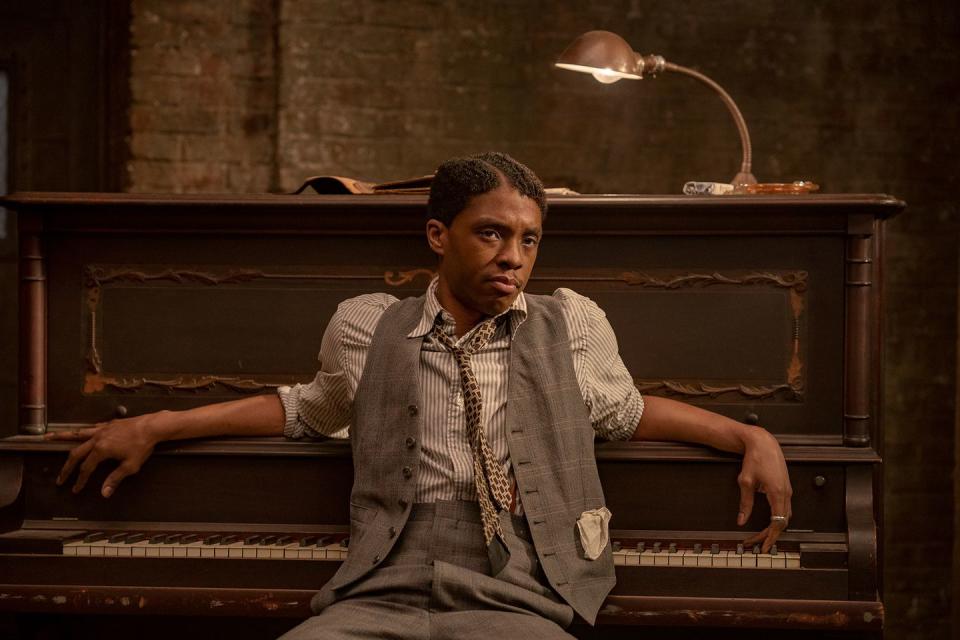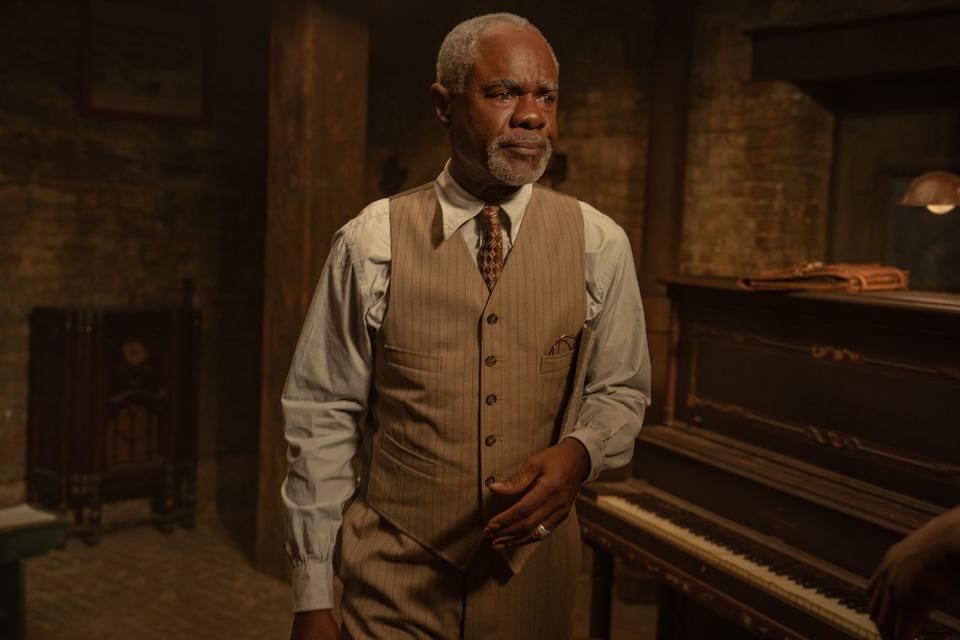'Ma Rainey's Black Bottom' Director George C. Wolfe on The "Two Crimes" at the End of the Film
- Oops!Something went wrong.Please try again later.
- Oops!Something went wrong.Please try again later.
This article contains spoilers for 'Ma Rainey's Black Bottom'
The last act of Ma Rainey's Black Bottom is a coda that puts the whole film into perspective, with two moments of violence laid side-by-side in the closing moments of the film. The first, and more explicit, of the two is Levee (Chadwick Boseman) dramatically stabbing Toledo (Glynn Turman) for standing on his shoe. Of course, the real reason Levee is lashing out is because of the violence he witnessed as a boy, in seeing his mother's rape and his father's murder at the hands of white men.
Levee spends much of the story flailing and fighting with anyone he comes into contact with, until there is nobody else left to turn to. Having been fired by Ma Rainey he is in a desperate state which leads to him taking a knife and stabbing Toledo, the kindly father figure of the band whose last moments are a haunting mixture of wide-eyed horror and forlorn acceptance of his fate.
This is the final shot in August Wilson's play, but in the Netflix version of Ma Rainey's Black Bottom, director George C. Wolfe adds one final thought before the credits roll. In this scene we see a white singer and a group of white jazz musicians in a newer looking studio recording the song that Levee had written and given to Sturdyvant earlier in the film. "I was thinking about how Sturdyvant takes that song, he doesn’t put it in a file, no, he goes ahead and records that song," George C. Wolfe told Esquire of his decision to add in the symbolic afterthought.
"There’s all these incredible stories in popular culture where a Black musician or artist comes along and their work or compositions are usurped by a more mainstream white artist," he added. "Big Mama Thornton sang 'Hound Dog', but we don’t know that version, we know the Elvis Presley version."

The idea of taking music made by Black people and having it almost taped over by white artists came to Wolfe when he was thinking about the celebrated American bandleader, Paul Samuel 'Pops' Whiteman."Paul Whiteman who did a concert at Carnegie Hall which was billed as, ‘the concert that made a lady out of jazz’, and so at a time when Black artists were making all this really interesting work, it was somehow him that legitimised jazz," Wolfe said. "So the character in the film is loosely patterned on Paul Whiteman."
Wolfe also spoke of how the ending plays with the image of what an artist has to do to get his work seen and heard, referencing the work of Black American composer Duke Ellington. "Ellington was a genius performer," Wolfe said. "But a number of songs from the beginning of his career said they were written by 'Duke Ellington and his manager'", underscoring the same white professional face which is put on the work of a Black artist.

By weaving the erasure of Black music into the story, we see Levee die in a sense as his music is recorded by white men, the very people who started the cycle of his trauma. As Wolfe said, "To me at the end there are two crimes that take place: one of the crimes is Levee and what he does to Toledo, and the other is what happens to his art, and that’s what I wanted to embody."
Discussing how the film could be read as a metaphor for where America is right now, Wolfe talked about the need to address the wrongs committed against Black people, saying, "It’s very important that people and countries go on a journey of healing in which they confront the pain, the horror and the sins of the past, otherwise you can’t go forward."
He added, "That is the American dilemma: how do you go forward into the future when you have a haunted past that you cautiously recognise? If at all." The need to address both the violence and the erasing of Black people and voices from the past is a message which lingers in the films final two moments.
In presenting these two moments next to each other Wolfe is making a statement about the legacy of Black people, how the trauma against them continues to be passed down, while their music is taken from them and turned into something which does not bear their name. It is a powerful final moment and a thoughtful update to Wilson's work, a play which wrestled with the nature of creative ownership and Black artistry at its heart.
Like this article? Sign up to our newsletter to get more articles like this delivered straight to your inbox
Need some positivity right now? Subscribe to Esquire now for a hit of style, fitness, culture and advice from the experts
You Might Also Like

